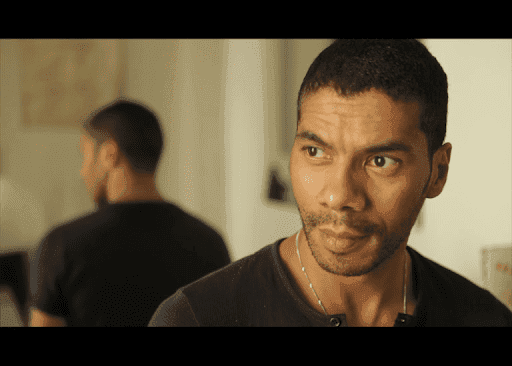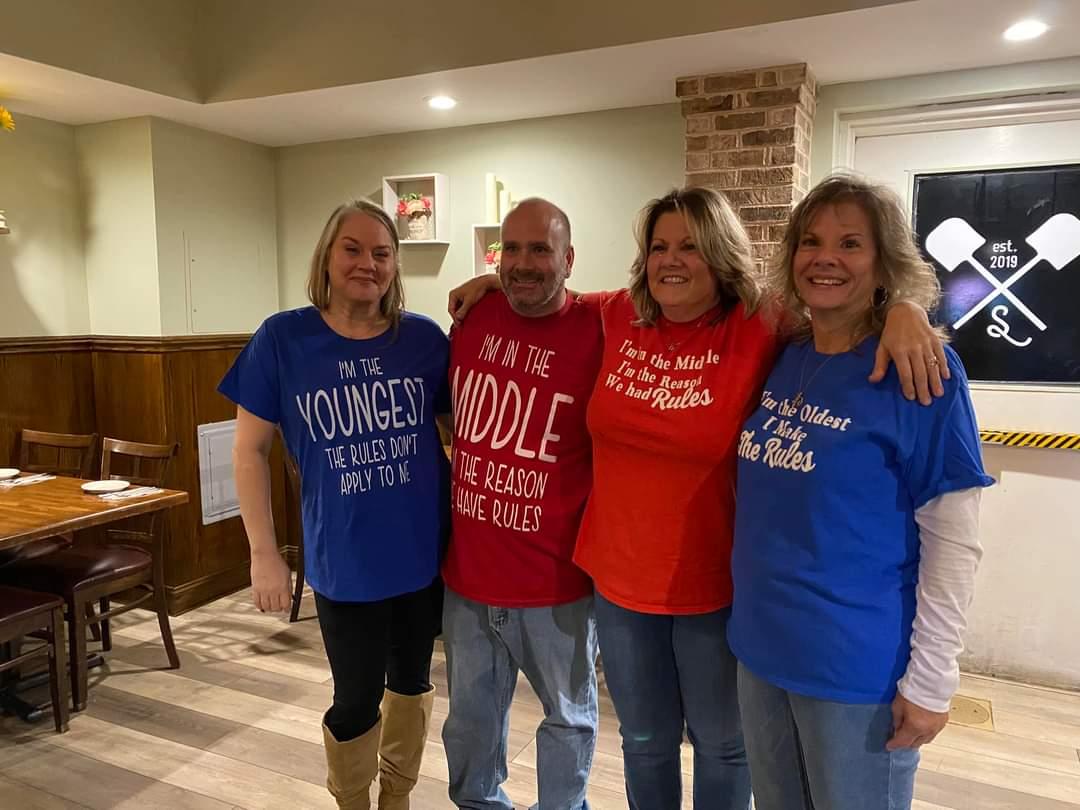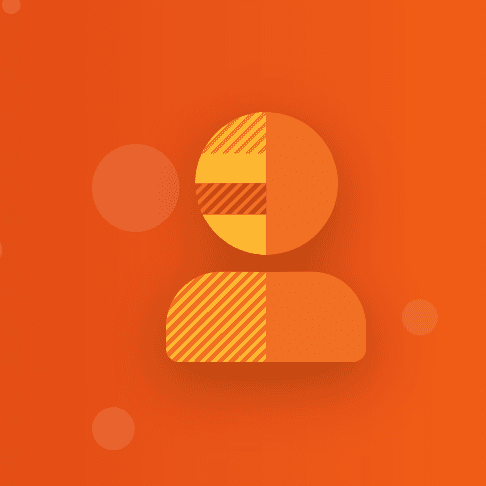Guillaume’s dad once referred to him in a poem as “my son of three fathers,” but he should have written: “My son of three fathers and three mothers.”
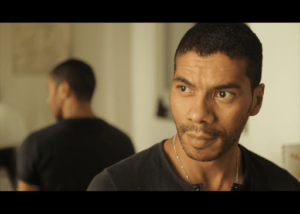
Guillaume Bordier
His parents adopted him during the final years of the war in Vietnam. After they divorced, he added a stepdad and stepmom to his family. But Guillaume also had an unknown third father and mother. All he knew was that his birth father was likely an African American serviceman, and his birth mom was Vietnamese.
Raised in France, Guillaume was the only dark-skinned boy in his school. He went on to become a virtuoso ballet dancer and choreographer but always wrestled with his identity and a desire to know more about his origins.
“Because of my physical characteristics, I knew that I was part Vietnamese and part African-American,” Guillaume said. “But I knew nothing else.”
Searching
Although Guillaume’s father once said, his son’s “eyes reflect the light of every corner of the world,” Guillaume did not feel connected in that way.
“I always wondered who I was, and what my real origins were,” he said. “And as an adopted child, no matter what we say, we are always looking for our roots.”
Opening up his 23andMe Ancestry Composition results for the first time, with it’s mosaic of colors representing the global regions from which his DNA originated, gave Guillaume another tangible representation of who he was and where he was from. And it opened up a door into the mysteries of his origins.
His arresting story of discovery, documented in a film directed by Jésus Castro-Ortega called “In Balance,” was first shown last summer on French National television. An English-subtitled version, distributed by Andana Films in the US, is now streaming on Amazon Prime and Tubi.
The opening scenes of the film include Guillaume seeing his 23andMe results for the first time.
“It changed the course of my life,” he said.
The Wolf Cub
The French couple who’d adopted Guillaume Bordier worried that he might not survive.
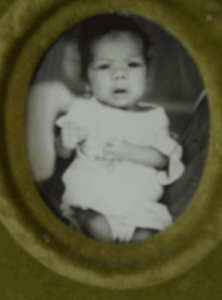
Photo of Guillaume at a Vietnamese orphanage before his adoption.
Malnourished, the 14-month-old weighed just 14 pounds and was in wretched physical condition. Sickly and slight for his age, his mother nursed him back to health. The young Guillaume was like an “abandoned wolf cub,” she once said.
At first, Guillaume, who would go on to become a powerful, and graceful ballet dancer, struggled just to walk. He didn’t take his first steps until he was two-and-a-half. Beyond those physical obstacles, Guillaume had to overcome the challenges put in front of him due to the color of his skin.
“Ballet dancing was, in France at that time, a solely white universe,” he said.
Yet dance was everything to him.
“I could have been someone who is violent,” Guillaume said. “But dance saved me. It was my therapy for every situation.”
His father at one point forbade him from dancing saying ballet is “not for boys.” So Guillaume would draw elaborate storyboards of the dances he had already memorized, complete with the positioning of every dancer, their names, and, of course, his role in the production.
That early obsession became his profession as Guillaume went on to dance in New York and Paris. Over time he added choreographer to his job title. But in the last few years, as Guillaume neared 50, the questions around his origins became more persistent. He often thought of where he’d come from, about the war, and what it must have been like for his birth mother to give him up.
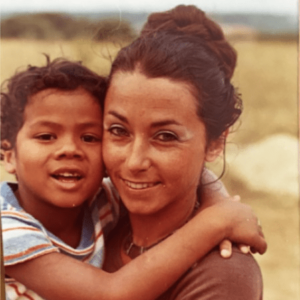
Guillaume and his mother in France.
In dreams he imagined that moment and what she might have said as she left her baby:
“’You will grow up not knowing your mother and father,’” he imagined her saying to him. “’You will keep wondering if we’re dead or alive. My son I won’t be there but here is your life.’”
My Brother?
Both nervous and excited Guillaume and his partner, Francois, sat down one night in 2016 to look at his 23andMe results for the first time. Anxious he didn’t know what to expect.
“Ever since I learned you could use DNA testing to find your origins I’ve wanted to do it,” Guillaume said.
His first reaction to the results was awe.
“Incredible,” he said when he saw the colorful wheel representing the regions to which his DNA connected him.
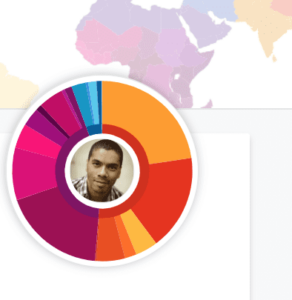
Guillaume’s Ancestry Composition includes the rich mix of his African American and Vietnamese roots.
Guillaume saw the large chunk of West Africa ancestry he inherited from his African American birth father, who also passed on to him a small but significant amount of European ancestry. He was surprised to learn that along with his Vietnamese ancestry from his birth mother he inherited a large amount of Chinese and Chinese Dai ancestry. The African and European half of his ancestry came from his father, and the Vietnamese and Chinese came from his mother.
“So I’m half American,” he said at one point after absorbing it all.
But it was when he looked at his DNA Relatives that he stopped short. At the top was a connection to a man he’d never met but with whom he shares about a quarter of his DNA.
“My brother,” he said and then corrected himself. “My half brother. This is so intense…Can you imagine?”
Back Into the Matrix
Guillaume marveled at the odds of finding his brother, Joe.
What’s Your Story?
Like our DNA, our stories connect us. They can also inspire, entertain and empower us. Thousands of 23andMe customers have already shared their stories with us. We hope you will choose to share yours.
Whether it’s about finding a long-lost relative, gaining insights into your health, or simply recounting the fun you’ve had while exploring your DNA, we want to hear your story. We may even want to feature it on our website or in a television commercial.
You can see some of our favorite customer stories here.
Joe was also born in Vietnam, but almost four years after Guillaume. He’d also been given up after birth, but in his case, he’d been raised by an elderly woman in his village. When he turned 18, he was able to come to the United States.
Guillaume and Joe finally connected via email and then talked on the phone. Joe, who now lives in Tennessee with his family, was able to tell Guillaume that he has at least seven siblings who are all from the same mother.
Most striking of all for Guillaume was that their mother was still alive, and had fled Vietnam to live in the United States. Joe could in turn introduce Guillaume to their mother, as well as a half-sister who both live in New Orleans.
Not long after that, he connected with her for the first time in an emotional video chat. At one point he broke down crying trying to explain to her what he is feeling.
“Mom, mom,” he said. “I’ve been searching for you all my life mom.”
A few months later, Guillaume comes to the US for a visit and drives with Joe to visit with their mother. In the days leading up the meeting, Guillaume felt he was living in an altered reality. He couldn’t sleep; he couldn’t help but go back over his life, thinking about everything, almost reviewing his existence in rewind.
“I’m starting over, going back into the matrix,” he said.
Like a Hurricane
Nothing is completely clear — the sequence of events, the names, and places — but sitting with his birth mother after their first emotional meeting Guillaume begins to get the first sketchy details of his origins. She spoke in broken English and sometimes in Vietnamese that was translated by her daughter, and Guillaume’s half-sister, Phung.
Their mother worked in the laundry near Camp Tien Sha, a Naval base in Danang that housed a battalion of Marines. Guillaume’s father was a young Marine.
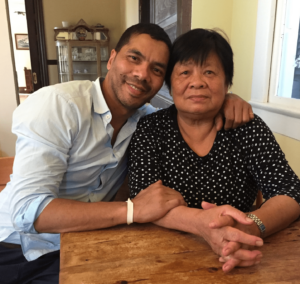
Guillaume and his birth mother after meeting for the first time.
They had started as friends but soon turned into something more. They were together for a few months in 1968 and 1969, she said.
“He looked like you,” she told Guillaume, adding that his skin was lighter like his, and that, “everybody loved him.”
Sometimes he would stay with her, she told him. Sometimes he’d be gone on missions for many days or weeks, and she would not see him. Then one day she was told he died in combat. She was devastated. She soon discovered she was pregnant.
Some of those details were comforting to hear, but Guillaume also had so many more questions.
What was his name? She wasn’t sure, John or James perhaps. She didn’t know his rank or his age. She wasn’t sure the date of his death or where.
She told Guillaume that after she’d heard the news, she became distraught and later became ill. When Guillaume was born both she and the new baby were sick, and they both began losing weight, she told him. At some point, she left him with a family that she trusted to care for him so that she could work in Saigon. When she returned they were gone, and unbeknownst to her had taken Guillaume to an orphanage.
That detail was important for Guillaume because he believed it meant she’d never abandoned him. She’d told him that she’d gone back and searched for him. She’d bike the countryside looking. His sister, Phung said that their mother never stopped thinking about him.
“You have to understand that Vietnamese people cherish boys,” she said.
Their mother had never stopped praying that she’d find him, and then like a miracle, he finds her.
It’s all a bit overwhelming and unbelievable. Guillaume didn’t just find his mother, but seven siblings.
“It’s like a hurricane in the brain,” he said. “An emotional (hurricane) Katrina. I didn’t expect that.”
I Think I Am Your Son
You can’t answer five decades of questions in one week, Guillaume said.
When he returned to France Guillaume shared photos of his trip with his adopted mother.
His mom immediately felt sympathy toward the woman who gave him up so long ago.
“This must have reminded her of a lot of things she wanted to forget,” Guillaume’s mother told him. “She must have thought you were dead. Can you imagine? She is very strong.”
But as the weeks and months went on after his visit, more questions emerged. Was his father really dead?
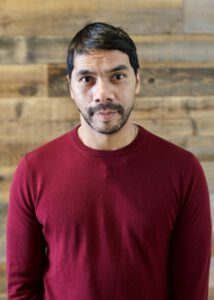
Guillaume is still search, trying to find the identity of his birth father.
“I can’t be certain,” he said.
Months after his visit he found another half-sister living in Texas, but closer to him in age. They met in person in the summer of 2018.
Guillaume found a few second and third cousins on his birth father’s side, but so far no insights into his birth father’s name or whether he died in Vietnam or not. He found the name of a young African American Marine, James Albert Sanders, who’d been killed in combat in May of 1969, and left a note on the Vietnam Veterans Memorial Fund “Wall of Faces.”
“Maybe you are my father,” Guillaume wrote. “If you are my father, I want you to know that I always looked for you. If you are my father, let me tell you that I am very, very proud to be your son … I became not a soldier but a soloist ballet dancer … If you are my father, let me tell you that I miss you so much and I love you with all my heart.”
